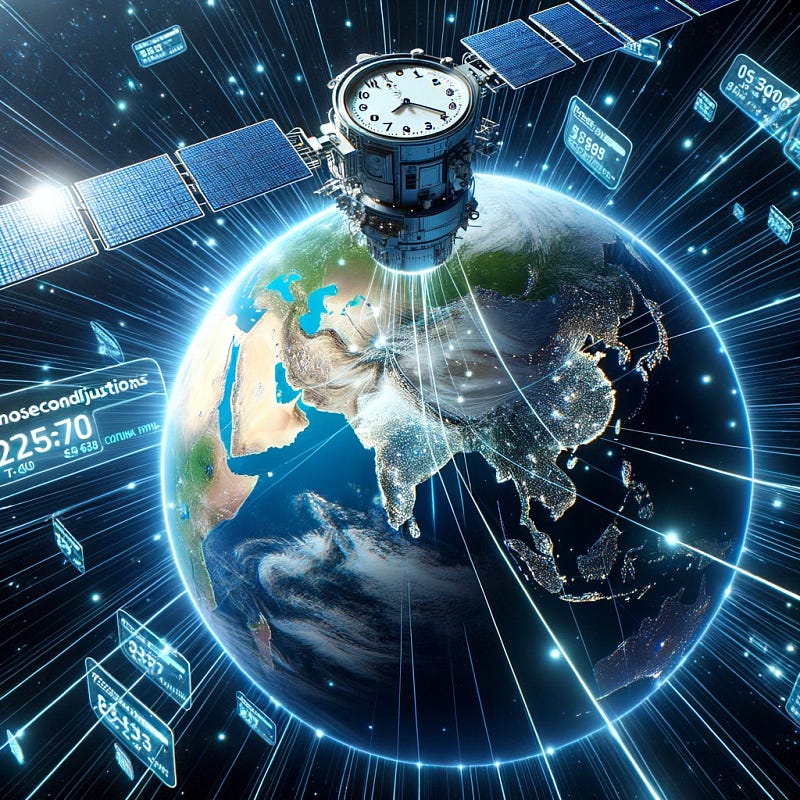Time Travel: A Fascinating Reality Beyond Sci-Fi Fantasies
Written on
Chapter 1: Understanding Time Travel
The concept of time travel often brings to mind images of futuristic machines, wormholes, and the ability to leap through time. However, while these imaginative scenarios remain in the realm of science fiction, we encounter variations in the flow of time in our daily lives that we often overlook. According to the principles of relativity, time is not a fixed entity but rather a flexible dimension, allowing us to experience a form of "time travel" on both personal and cosmic levels.
Einstein's theory of relativity has shown us that time is dependent on factors like speed and gravitational pull. This implies that time can move at varying rates depending on one’s velocity relative to another observer. The phenomenon known as time dilation illustrates this concept, and it has been empirically validated right here on Earth.
Section 1.1: The Proof of Time Dilation
For instance, highly accurate atomic clocks that have been flown around the globe on commercial flights record a slightly shorter duration than identical clocks that remain on the ground. Although the difference is minimal, it serves as evidence that motion affects the flow of time. The quicker an airplane travels, the more sluggish its clock appears compared to a stationary one.
Subsection 1.1.1: Astronauts and Time Perception
Astronauts aboard the International Space Station (ISS) age marginally slower than individuals on Earth due to their high velocities, which causes time to elapse more slowly for them. These scenarios illustrate how we frequently experience subtle forms of "time travel" influenced by the effects of motion and gravity.

Section 1.2: GPS and Relativity
When you rely on a GPS system for navigation, you are, perhaps unknowingly, benefiting from adjustments made to account for time dilation. The network of satellites that support GPS functionality must consider relativistic effects to maintain their accuracy.

Due to their speed—exceeding 8,000 miles per hour at altitudes of approximately 12,500 miles—GPS satellites' onboard atomic clocks tick slightly slower than those on Earth's surface by mere nanoseconds. If these discrepancies were ignored, GPS coordinates could drift by as much as 10 kilometers a day! Consequently, GPS engineers integrate relativistic calculations into their systems to ensure accuracy. So, the next time you use GPS, remember it quietly employs Einstein’s time dilation concepts to guide you.
Chapter 2: Cosmic Time Dilation
The first video titled "Is Time Travel Possible? Here's What Physics Says" delves into the scientific aspects of time travel, discussing how relativity influences our perception of time.
Cosmic time dilation isn’t limited to local experiences; it extends to the vast distances across the universe. When we observe distant stars and galaxies, we are essentially looking back in time. The immense duration it takes for light from these celestial bodies to reach us provides glimpses into history.

For instance, the Andromeda Galaxy, located 2.5 million light-years away, presents a view that reflects its state 2.5 million years ago, as that is how long it takes for its light to traverse the cosmos to Earth. Thus, astronomical observations grant us visual access to the distant past in various parts of our extensive universe, making this form of "time travel" achievable without advanced technology. Although we cannot alter or interact with history, we can observe it from afar.
The second video titled "Time Travel Is REAL! How You Can Do It..." explores theoretical aspects and possibilities surrounding the concept of time travel.
Section 2.1: Gravitational Influence on Time
Time is also affected by gravitational forces, as demonstrated by general relativity. Clocks situated near strong gravitational fields operate at a slower pace compared to those located farther away.

This phenomenon has been confirmed through experiments involving atomic clocks placed near massive objects. The most pronounced time dilation occurs near black holes, where the intense gravitational pull warps space-time so dramatically that time can seem to come to a standstill for an external observer.
A clock orbiting just outside a hypothetical black hole's event horizon may appear frozen from afar, even though the astronaut aboard would continue to experience time normally. This stark contrast illustrates how extreme gravitational differences can give the impression of "time travel" into the future relative to observers outside.
Conclusion: Is Time Travel Possible?
While we may not possess time machines akin to those seen in science fiction, real-world examples clearly demonstrate that relativity leads to observable time variations and "time travel" effects in tangible ways, both on Earth and beyond.
The potential for technology that could enable journeys into the future or the past at human scales remains speculative. Einstein’s theories do not rule out the possibility of forward time travel through high-speed spaceflight or other advanced methods. However, the prospect of traveling backward in time may be fraught with paradoxes that could be insurmountable.
In any case, the reality of time dilation is undeniable; it happens continuously on both personal and cosmic scales. We routinely encounter measurable differences in the passage of time that align with the fundamental concept of "time travel." Although this is a departure from the fantastical portrayals in films and literature, time travel is not merely fictional; it is a significant aspect of our relativistic existence that we all experience daily.